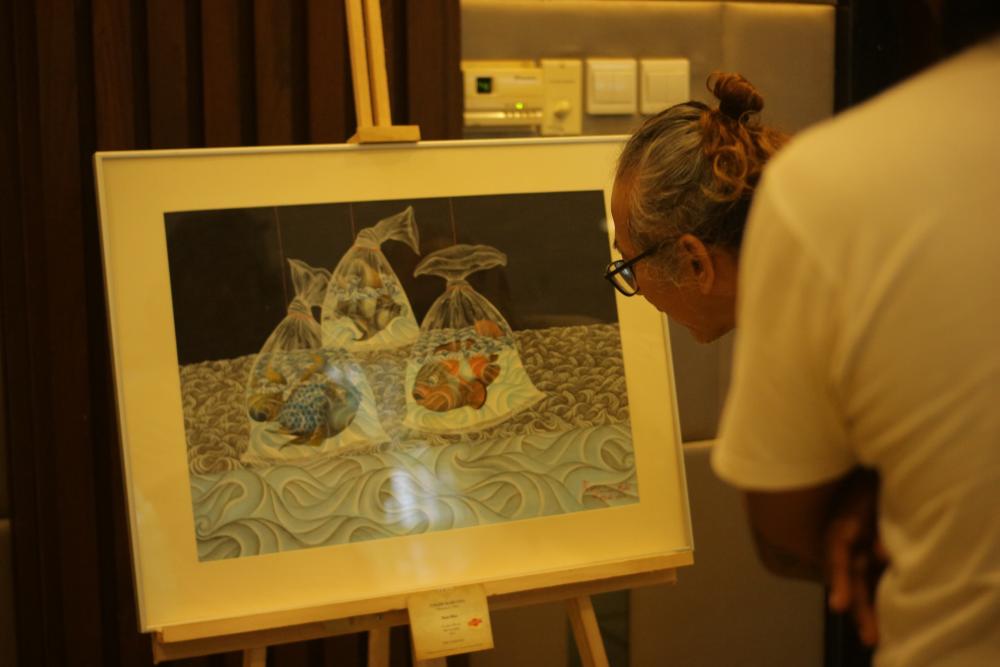'Magibung' introduced by the king of Karangasem
- 22 Agustus 2023
- Traditional
- Karangasem

KARANGASEM, NETIZENBALI.com - Magibung is a traditional custom of eating together in a communal way that originated from Bali, Indonesia. It is practiced by the Balinese people who live in the regions of Karangasem and Klungkung.
Magibung means to share and cooperate with each other in one container (sela) that consists of several people. Magibung is a symbol of unity and solidarity among the community, as well as a way of honoring guests and building relationships.
The history of Magibung dates back to the 17th century, when it was introduced by the King of Karangasem, I Gusti Agung Anglurah Ketut Karangasem. He initiated Magibung when he was leading an expedition to conquer the kingdoms in Lombok.
He ordered his soldiers to eat together in a circular position during their rest or war. He also joined them in the circle to show his closeness and brotherhood with his troops.
The etiquette of Magibung involves some rules that have to be followed by the participants. For example, they have to wash their hands before eating, they cannot drop any food from their mouthfuls, they cannot take food from their neighbors, and they cannot leave their place or their friends if they are full.
They eat using their right hand from a large plate that is placed in the middle of the circle. The plate is filled with various dishes, such as rice, vegetables, meat, and spices. The first dish that is served is the vegetable, while the meat is the last one.
The drink is provided in a clay pitcher. The way of drinking is to sip from the edge of the pitcher without touching it with the lips, which is called nyeret. Nowadays, the pitcher is replaced by bottled mineral water for practicality.
Magibung is a unique and rich cultural heritage that reflects the values and identity of the Balinese people. It is also a way of celebrating and welcoming special occasions, such as religious festivals, weddings, birthdays, and anniversaries. Magibung can foster a sense of belonging and harmony among the people who participate in it.
Yes, tourists can participate in Magibung if they are invited by the local people or if they join a special program offered by some hotels or restaurants in Bali. Magibung is a great way to experience the Balinese culture and hospitality, as well as to enjoy the delicious food.
However, tourists should also respect the etiquette and rules of Magibung, such as washing their hands before eating, not dropping any food, not taking food from their neighbors, and not leaving their place until everyone is done. Tourists should also be aware that some dishes may contain pork, which may not be suitable for some religious or dietary preferences.
Magibung has a strict etiquette that requires the participants to wash their hands before eating, not drop any food from their mouthfuls, not take food from their neighbors, and not leave their place or their friends if they are full. Other communal eating customs may have different rules or norms that govern the behavior of the participants.
Magibung is a symbol of unity and solidarity among the community, as well as a way of honoring guests and building relationships. Other communal eating customs may have different purposes or functions, such as celebrating special occasions, expressing cultural identity, or fostering social bonds.
These are some of the differences between Magibung and other communal eating customs. I hope this helps you understand more about this unique and rich cultural heritage. (NB)












Related Articles
- Unique Ritual at Telaga Maya, Ducks Appear to Swim in Dry Waters
- Pesona Pagi di Sangkaragung, Bersepeda Menyusuri Warisan Penenun Songket
- Gambaran Video Ritual Pernikahan di Bali yang Sederhana dan Autentik
- Krama Istri Panjat Pinang, Tradisi Unik dalam Karya Agung di Desa Pulukan
- Tirta Kamandalu: taking a nectar of life in the middle of the ocean